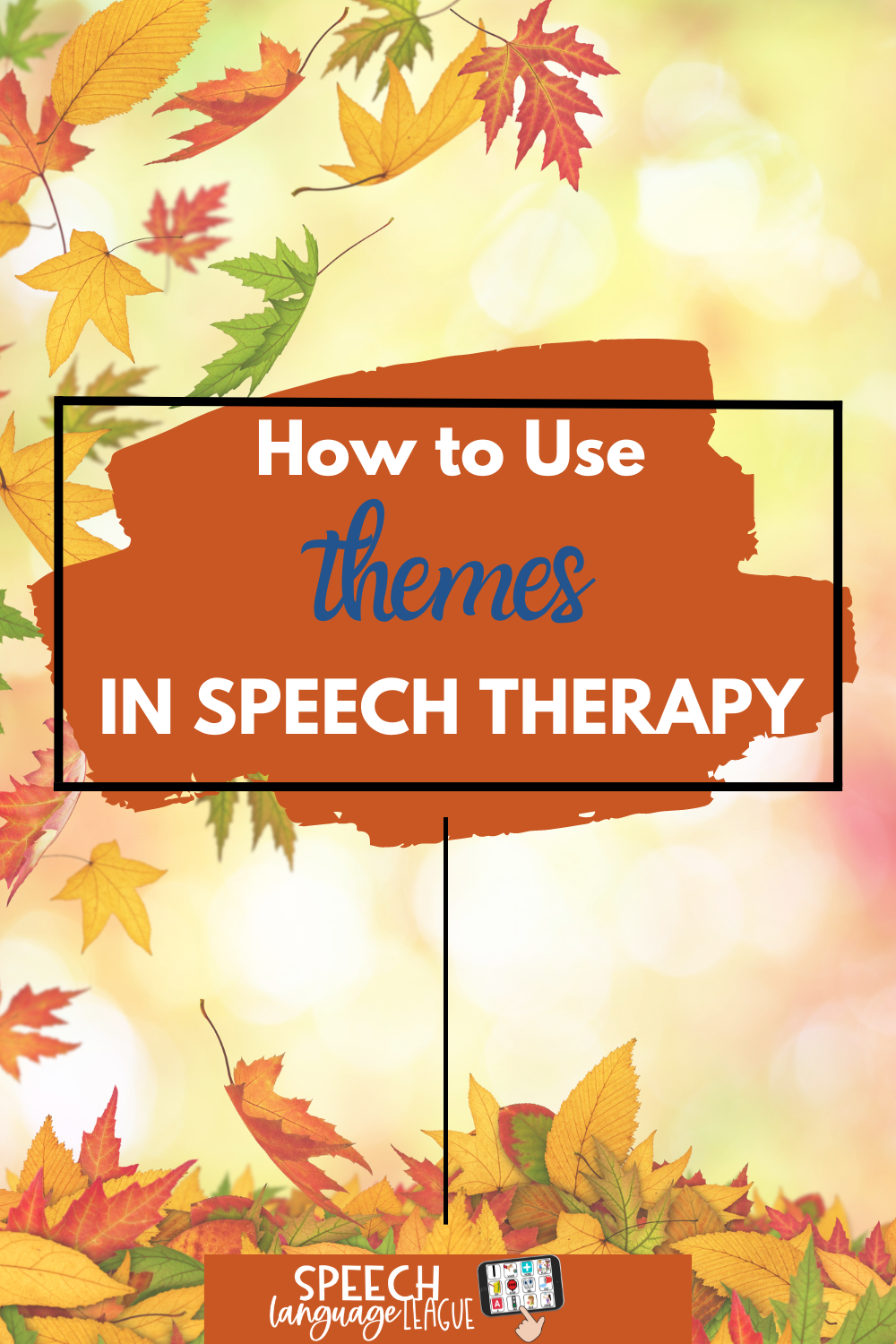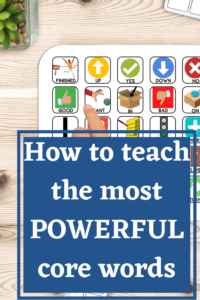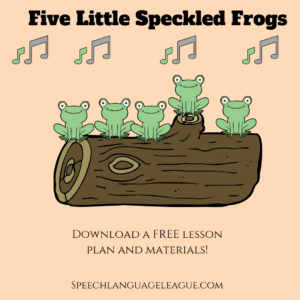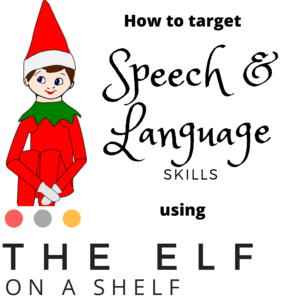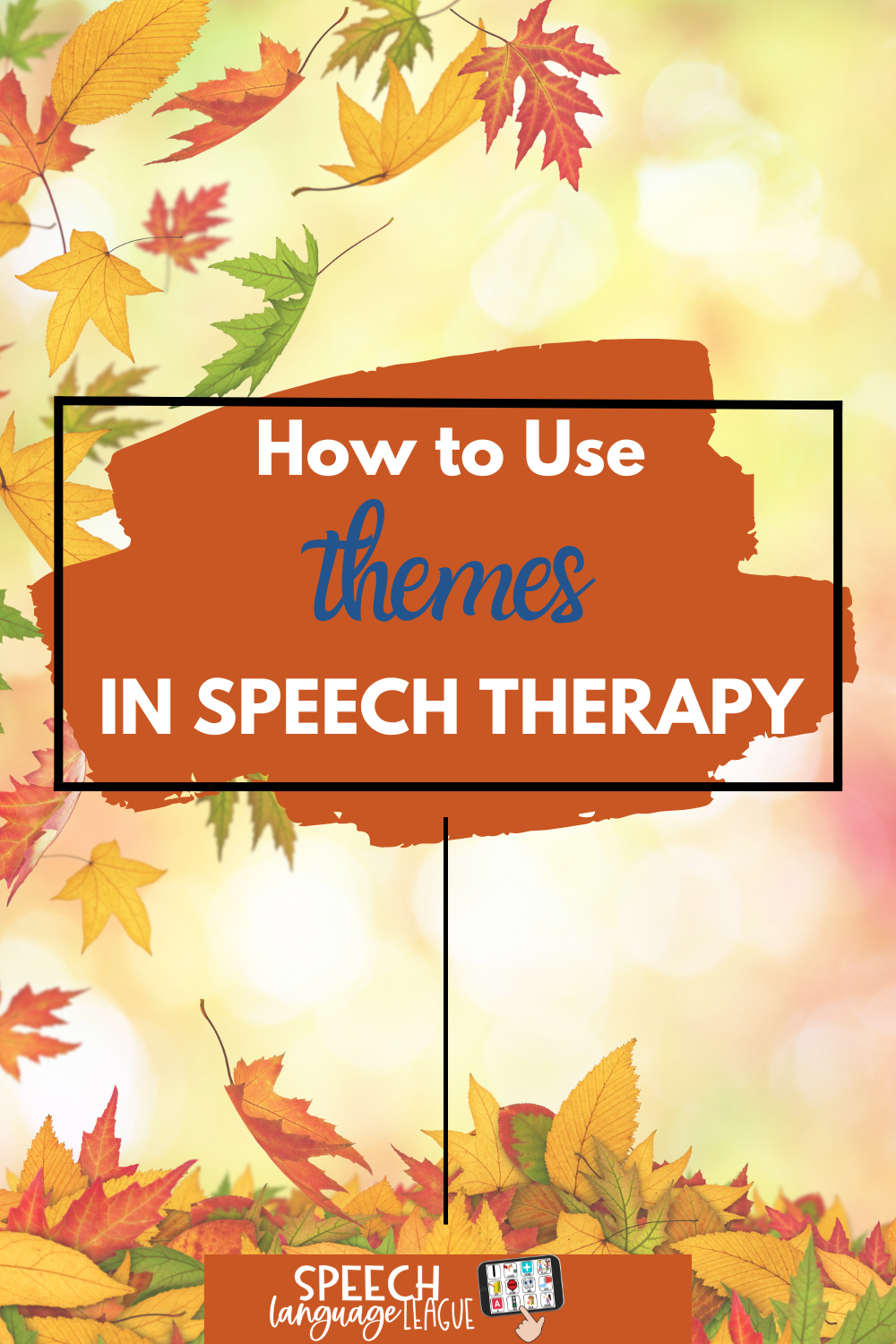
Why use themes in speech therapy?
Have you ever wondered why so many SLPs use themes in speech therapy? For me, themes are a way to keep organized and also to use evidence-based strategies to teach my students speech and language skills.
There are many benefits of using themes in your speech sessions; as a matter of fact, there are benefits for both for you AND your students!
Well-designed themes include a variety of meaningful activities planned around a central topic or idea. The activities are then tied into your students’ specific goals for speech therapy. This doesn’t mean sticking some fish stickers on your worksheet and calling it “ocean-themed,” the content, vocabulary and questions should all connect back to your theme. In fact, thematic learning has been found to help students learn concepts and categories by building semantic connections between the content and their own experiences with the given theme (Del Duca).
Another misconception about using themes in speech therapy is that you need to have a new theme for every session with your students. The truth is that staying in one theme for longer, even a few weeks, can actually be more beneficial to your students because they get more repeated input to strengthen their expressive and receptive language using those same themed activities (Del Duca).
Having themed units that you can use with your students will save you time and planning because you know exactly which activities go along with the theme and how to target those goals. Personally, using themes has saved me time each year because I can quickly go back to themes I have used in the past and use them with my groups of students.
How to Use Themes in Speech Therapy
- Choose a theme {see the examples below!}. I like to choose themes that correspond with the current season; for example, PUMPKINS in October or GARDEN in May. This way, your students are not only learning these concepts in speech therapy; but likely are being exposed to those same concepts at home and in the community.
- Choose a variety of activities within those themes. Choosing lots of different activities allows you to incorporate a variety of interests and prevents students from getting bored. In addition, students are generalizing skills that they have learned across a variety of activities. For example, within the PUMPKINS theme, you may read Spookley the Square Pumpkin, complete a Pumpkin Craft, do an Interactive Google Slides Activity, explore a sensory bin, and complete some worksheets.
- Target all of your students’ goals within those activities. Don’t make this complex. Speech and language skills are easy to target within any activity. If it helps you, make a list of all the goals on your caseload. Each time you have a new theme, you can quickly brainstorm ways to target those goals within your theme. For example, within the PUMPKIN theme, you can target following directions, sentence expansion (I may brainstorm a few phrases like ‘We see pumpkins in the fall’ or ‘The pumpkin is ________’.), and actions ( I may brainstorm some actions having to do with pumpkins like carve, paint, carry, pick, etc.).
That’s all there is to it! It is super simple, keeps you organized, and allows you to target all of your speech goals in a way that really helps your students comprehend AND generalize skills.
What are examples of good themes?
Here are some of my favorite themes to use in speech therapy. I love them because they are seasonal and allow for easy generalization of skills at home!
- Back to School
- Fall
- Apples
- Farm
- Pumpkins
- Bats
- Halloween
- Gratitude
- Harvest
- Turkeys
- Thanksgiving
- Super Heroes
- Winter
- Snow
- Arctic Animals
- Hibernation
- Gingerbread
- Christmas
- Traditions
- Sweet Treats
- Valentine’s Day
- Friendship & Kindness
- Black History
- Presidents
- St. Patrick’s Day
- Spring
- Earth Day
- Easter
- Butterflies
- Garden Bugs
- Transportation
- Pets
- Summer
- Camping
If you’re interested in a more done-for-you option including materials for implementing ALL of these themes, consider joining SLP Support System! Plus, you will get access to an amazing data form that writes your SOAP notes for you!
Themed Resources You May Be Interested In:
No-Prep Worksheets for Mixed Groups
No-Prep Seasonal Interactive Boom Card Books
